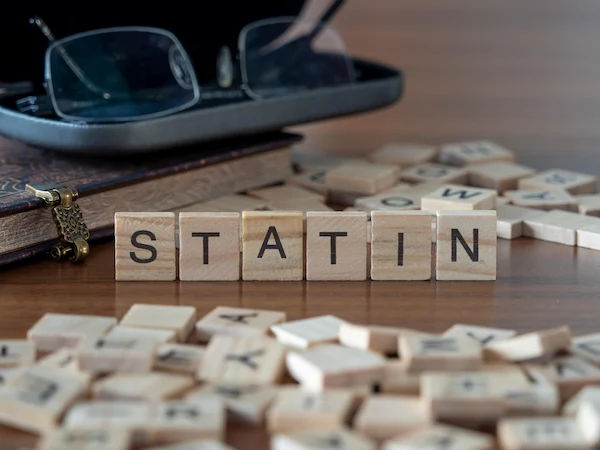- female
- 45 Years
- 20/02/2025
I'm a bit worried about my recent 2D echocardiogram report. All the measurements seem to be in range and my EF is at 62, which I guess is normal? But the report mentions a mild MR on the mitral valve and mild PR on the pulmonary valve. I sometimes feel dizzy when I go outside, and my neurologist mentioned it might be cardiac neurosis. I can't shake the feeling that something might be wrong with my heart. Can you help me understand what's really going on?
Answered by 1 Apollo Doctors
In 2d echocardiogram report, all measurements are within range and EF is 62%. However, the report shows mild mitral regurgitation (MR) and mild pulmonary regurgitation (PR). You mentioned feeling dizziness sometimes when you go outside, and a neurologist suggested it may be a cardiac neurosis issue. It's understandable to be concerned about the findings in the report. The mild MR and PR in the echocardiogram report are common findings and may not necessarily be the cause of your symptoms. In your case, where the EF is normal and other measurements are within range, these mild valve issues may not be the primary reason for your dizziness. To address your symptoms of dizziness, it would be important to consider other factors such as hydration, blood pressure, inner ear issues, or anxiety. However, if you are still concerned about the mild valve issues, you can discuss with your cardiologist about monitoring them periodically. For your dizziness, you can try to stay hydrated, avoid sudden position changes, and practice relaxation techniques. If the symptoms persist or worsen, further evaluation may be needed. I hope this information helps alleviate some of your concerns.
Dr. Chandra Suggests...
Consult a Cardiologist
Answered 04/07/2025
0
0

Ask Apollo
AI powered Health Chatbot
-
Understanding Mild Mitral and Pulmonary Regurgitation
- Mitral and pulmonary regurgitation involve minor backward blood flow through the heart valves.
- 'Mild' indicates a small amount, often not serious, especially with a normal EF of 62%.
-
Symptoms and Their Possible Causes
- Dizziness can relate to heart function or other factors.
- Cardiac neurosis involves anxiety-related heart symptoms.
-
When to Seek Further Medical Evaluation
- Watch for worsening symptoms like severe dizziness or chest pain.
- Regular follow-up with healthcare providers is advised.
-
Lifestyle and Management Tips
- Maintain heart health with a balanced diet, regular exercise, and stress management.
- Follow your neurologist's advice and report any new symptoms.
-
Collaboration Between Specialists
- Coordinated care between cardiology and neurology ensures comprehensive management.
Recommended next steps
Consult a Cardiologist
Answered 10/09/2025
0
0

More Cardiology Health Queries
View allI'm a little concerned because my blood pressure reading came out as 11886 mmHg. Is this considered normal or should I be worried about it? What do you suggest I do next?
yes
Answered by 1 Apollo Doctors
What should we do when BP is high?
You must be evaluated and started on medications appropriately. Do some lifestyle modifications too such as low salt diet, physical activity daily and quit smoking, alcohol.
Answered by 1 Apollo Doctors
My dad's 76 and a few years back he was diagnosed with triple vessel coronary artery disease and lmca disease. Three years ago, he had an angioplasty and got a stent put in for one of his major artery blocks. The cardiologist suggested we manage the two other 100% blocks with medical management instead of more procedures because of some complications. Small hitch though, post-angioplasty, his kidneys were affected and his creatine level hit 1.6. He's been maintaining it between 1.6 to 1.8 with a strict diet for almost three years now. Recently, his cardiologist changed up his meds to boost his heart function and put him on Isolazine. Now, his blood pressures gone up and one of his legs is swelling. I'm stuck wondering if its fluid retention but is it from his heart or his kidneys acting up? Should we be worried about Isolazine for his kidney health? Hes been on it for around four months. Could it be related? What's your take on this?
Isolazine is not recommended for patients with kidney issues, as it can potentially worsen kidney function and cause fluid retention, which may present as leg swelling. It is advisable to stop Isolazine and consult with the cardiologist for an alternative medication that is safer for kidney function. In the meantime, it is important to monitor his blood pressure closely and manage any fluid retention symptoms.
Answered by 1 Apollo Doctors
Disclaimer: Answers on Apollo 247 are not intended to replace your doctor advice. Always seek help of a professional doctor in case of an medical emergency or ailment.





